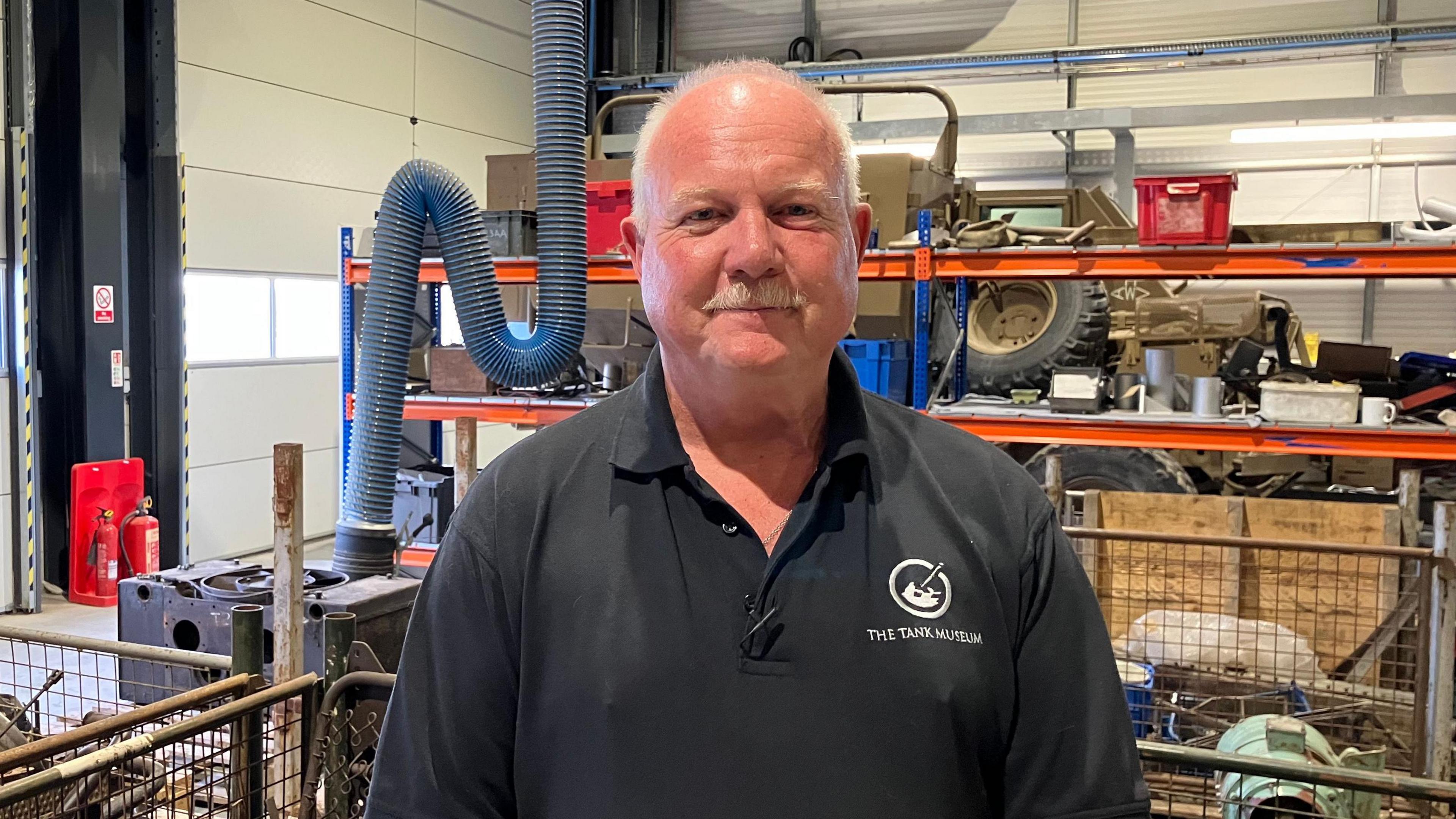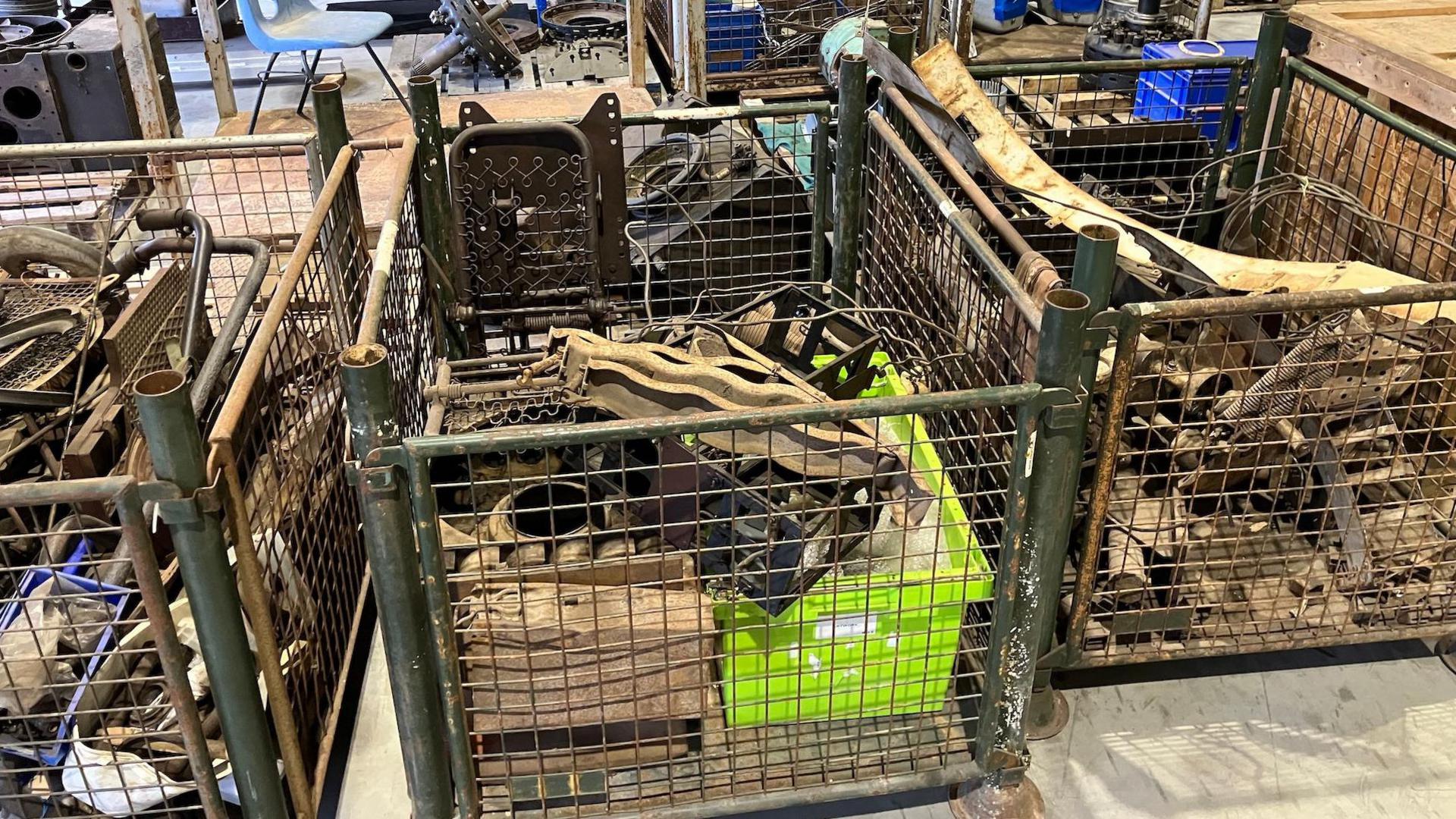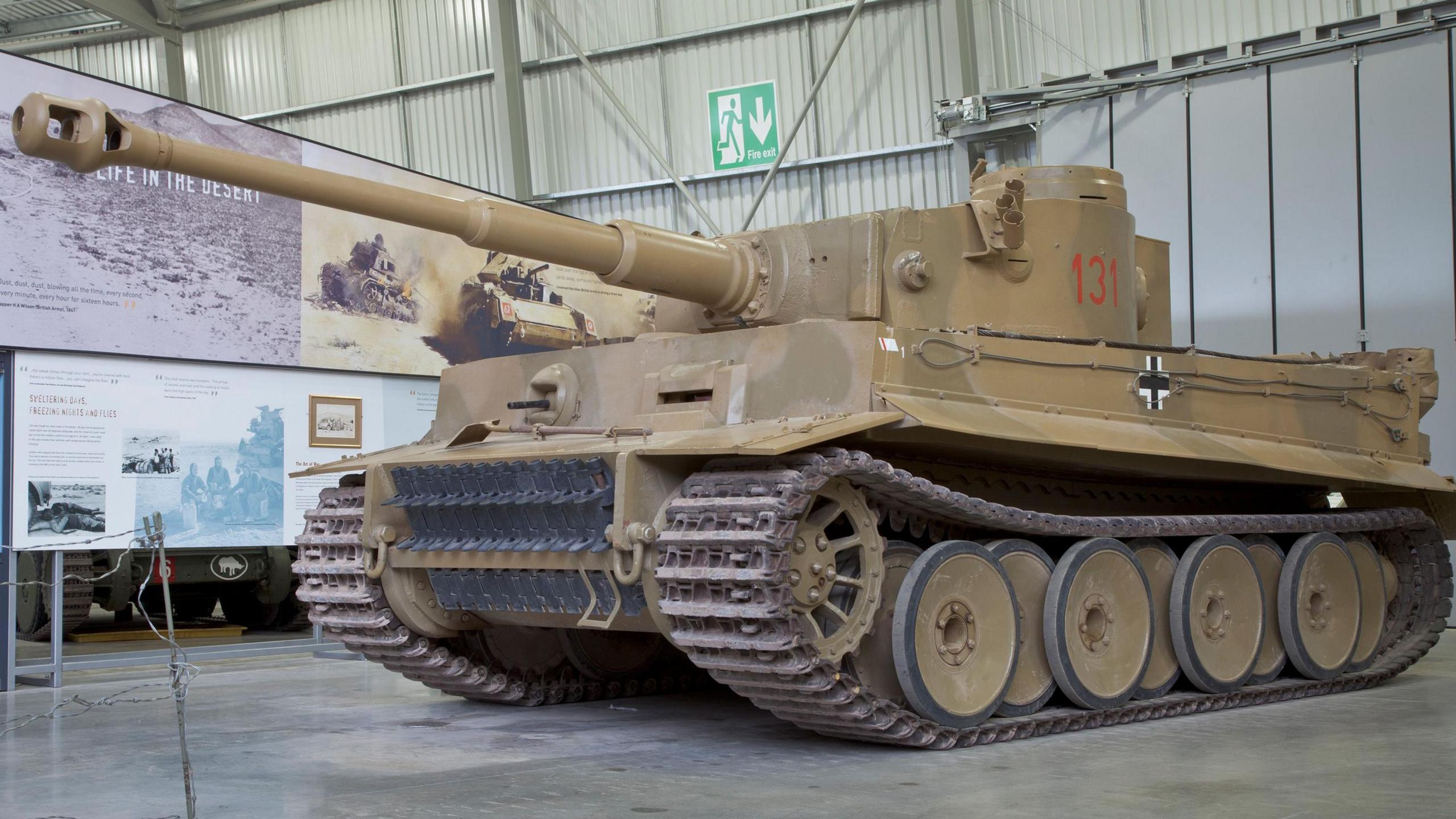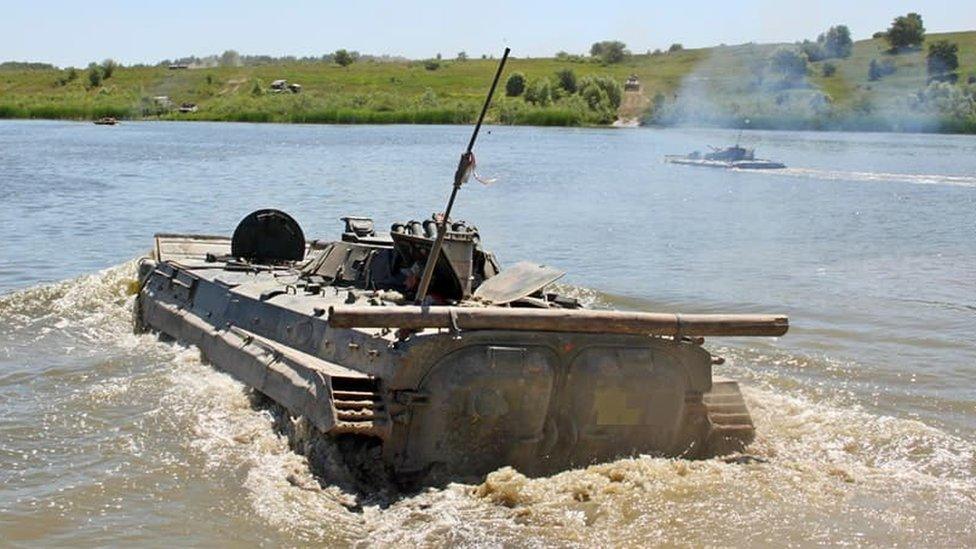'Fearsome' WW2 King Tiger tank's £1m restoration

The King Tiger tank is the oldest in the world and needs to be fully rebuilt inside
- Published
An ambitious £1m plan to restore one of World War Two's most formidable tanks has been launched by a Dorset museum.
The King Tiger tank has been in the collection at The Tank Museum, in Bovington, since the 1950s.
But it was incomplete when it arrived, and was later stripped of its remaining parts during the 1980s to facilitate another restoration.
The team at the museum estimates it will take four years to completely rebuild the German tank and get it running again.
More from Dorset
Crash closes major route in both directions
- Published22 October
Weather forces speedway final postponement
- Published22 October
Solicitor with personal cause crowned Miss GB
- Published21 October
There is only one other fully working King Tiger tank in the world, which belongs to a museum in France.
King Tiger tanks were built towards the end of the war as a successor to the Tiger 1.
"If you see them drive, and if you see them one-to-one with a Sherman [tank], they are impressive beasts," said Chris van Schaardenburgh, The Tank Museum's Vehicle Collections Manager.
"And also because they are so rare, because not that many were built, and not that many survived, they have quite a huge following in the tank world, and with history buffs."

Chris van Schaardenburgh, The Tank Museum's Vehicle Collections Manager, said Tiger tanks have a huge following
The King Tiger which will undergo restoration is especially rare as it was built in 1943 as a test vehicle and never saw action.
As well as being the oldest in the world, it also differs from later production models, making it unique.
The museum hosts two days every year dedicated to Tiger tanks, with about 5,000 visitors a day coming to see their smaller Tiger 1 tank in action.
It is hoped restoring the King Tiger back to fully working order will prove an even bigger draw.

Workshops manager Duncan Masters said the restoration would cost upwards of £1m and take about four years
The King Tiger tank arrived at the museum incomplete in 1953, and it was later stripped of the rest of its parts in the 1980s to restore the Tiger 1 tank.
Now, with the inside a completely empty shell, staff at the museum said putting it all back together was going to be a complex task.
The man in charge of the restoration is workshops manager Duncan Masters, who likens it to a giant jigsaw.
"I don't know whether I've got all the corners missing on my jigsaw or if I've got that one piece in the middle missing," he said.
"I don't know yet, so we'll empty all the crates out and try and run through photographs and the engineering drawings we've got to see what parts we've actually got and then we can work out a shopping list from there."

The crates are full of parts that were stripped from the King Tiger tank in the 1980s - the team now needs to work out where they all go
The project's estimated £1m budget will pay for three extra engineers to work on the restoration full time, but some parts will need to be sourced from elsewhere and others fabricated from scratch.
Mr Masters said: "My analogy is it's like buying a piece of cake - if you went to a cake shop it's 50p but say it's for a wedding it's £5.
"This, if we mention any part is for King Tiger, the noughts just grow on the end of the price."
He said at first it seemed a daunting project, but now he is confident it can be done, and is looking forward to getting started and seeing it completed over the next four years.
"I'm probably looking to retire at that sort of time so I think it would be quite a nice way to finish my time here having seen this restored and up and running," he added.
Get in touch
Do you have a story BBC Dorset should cover?
You can follow BBC Dorset on Facebook, external, X (Twitter), external, or Instagram, external.
Related topics
- Published28 August

- Published2 September

- Published6 March 2024
